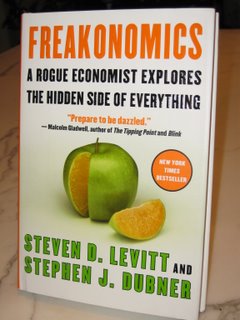Freakonomics got real estate wrong...

In the book, Freakonomics, the authors, Steven D. Levitt and Stephen J. Dubner, claim to be experts on hidden incentives that drive human behavior. In the introduction to the book and in Chapter 2, they refer to real estate agents, and they have made some major oversights.
Levitt and Dubner cite a study that was done in the Chicago area that supposedly showed that real estate agents sell their own personal homes slower and for more money than their listings of clients' homes.
After reading the complete study (which is not in the book), I found that there are flaws in their methodology and conclusions.
Levitt and Dubner claim that because the incremental difference in the commission amount is so small, the agents advise their clients to accept offers for an average of $10,000 less than on their own homes.
One flawed assumption they make is that all real estate agents are on 50/50 splits with their companies. This is ludacrous. In the real world, the great majority of real estate agents receive much greater splits, and many receive 100% of the commissions. For experts on incentives, the authors entirely miss the point that 100% agents have a huge vested interest in their clients' getting top dollar and being satisfied with the service and representation they get from their real estate agent. In fact, their study specifically excludes 100% agents, who happen to be the most productive and experienced in the business.
Oh, and by the way, it is not the decision of the real estate agent to accept the offers brought to the sellers. It is sellers who decide to accept or reject offers on their properties.
In addition, most real estate agents would prefer to receive their compensation on the sale of their own house as a capital gain instead of ordinary income. As a result, prices of homes can be adjusted for the commission to be waived, but built into the selling price to accomplish this tax maneuver. The study shows that on average, real estate agents' homes sell for $10,000 more than their clients'. Taxes on $10,000 ordinary income could easily be $4000 for the agent, where taxes would be $1500 on the capital gain.
How could the "incentive experts" miss this one?







1 Comments:
It is amazing to me how may people still have no clue as to how the real estate business really works.
Our clients have always made the final decisions about whether to sell or not.
Post a Comment
<< Home